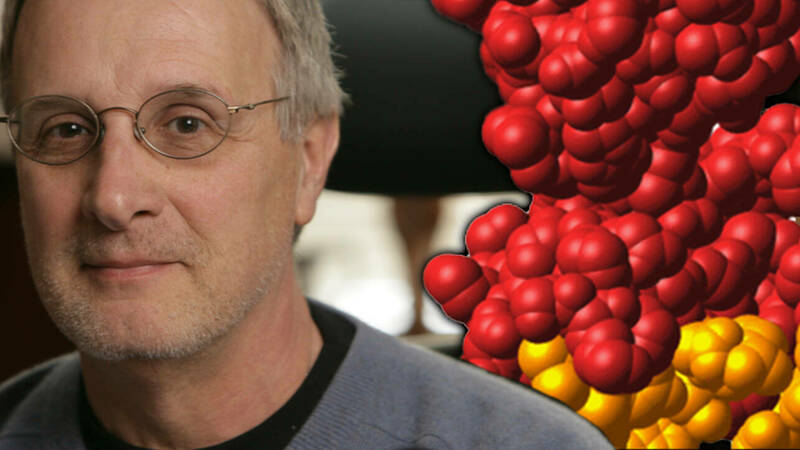
Francis Castellino
Kleiderer-Pezold Professor of Biochemistry; Director, WM Keck Center for Transgene Research
- Office
- 230E Raclin-Carmichael Hall
Notre Dame, IN 46556 - Phone
- +1 574-631-8996
- fcastell@nd.edu
Research Areas
- Biochemistry
Research Specialties
- Life Processes
- Medicine
Prospective Graduate Students
Biography
| Year | Title |
|---|---|
| 2006-present | Adjunct Professor of Biochemistry & Molecular Biology, Indiana University School of Medicine |
| 1996-present | Director, WM Keck Center for Transgene Research, University of Notre Dame |
| 1983-present | Kleiderer/Pezold Professor of Biochemistry, University of Notre Dame |
| 1979-2002 | Dean, College of Science, University of Notre Dame |
| 1977-1983 | Professor, University of Notre Dame |
| 1974-1977 | Associate Professor, University of Notre Dame |
| 1970-1974 | Assistant Professor, University of Notre Dame |
| 1968-1970 | NIH Postdoctoral Fellow, Duke University |
| 1968 | Ph.D. in Biochemistry, University of Iowa |
| 1964 | B.S. University of Scranton |
Selected Awards
2020 ISTH Esteemed Career Award
2014 University of Iowa Carver College of Medicine Distinguished Alumnus Award
2008 Wyeth-ISPF Research Prize
2006 Fellow of the Reilly Center for Science, Technology, and Values
2003 Annual Faculty Award, University of Notre Dame
2001 Elected Fellow of the American Heart Association and the Council on Arteriosclerosis, Thrombosis, and Vascular Biology
1998 Fellow, American Association for the Advancement of Science
Research Interests
The interests of Professor Castellino's laboratory involve the structure, function and activation of proteins that participate in blood coagulation and blood clot dissolution. The in vivo mechanisms of the roles of these proteins in these processes are being addressed through in vivo targeted gene-replacement approaches and corresponding in vitro structure-function studies on these genes and proteins are being studied by the most modern biophysical techniques, e.g., X-ray crystallography, NMR, etc. Most of these proteins exist in an inactive state in plasma and thus must be activated to enzymes to exhibit their functional properties. The molecular events involved in the activation and analysis of the concomitant structural changes that occur in the protein are investigated by modern biochemical techniques. Major tools of the laboratory involve cloning, mutagenesis and expression of variant recombinant proteins and individual protein domains, immunochemical studies of the proteins, as well as physical and chemical analysis of their solution structures. The properties of the proteins are then related to their functions. Another project receiving attention involves the structure-function relationships of small gamma-carboxyglutamic acid (Gla)-containing peptides from marine cone snails that target the brain NMDA receptor. These peptides inhibit the flow of calcium into neuronal cells, this latter event being responsible for the neuropathology associated with stroke, epilepsy, Alzheimer's Disease, ALS, etc. The biochemical, pharmacological and neurobiological mechanisms of the actions of these peptides are under study. Peptide synthesis, receptor binding, molecular biological and electrophysiological tools are currently employed in this work. To determine the biological functions of genes encoding coagulation and clot-dissolving proteins in hemostasis, cancer, inflammation, wound healing, embryonic implantation and development, metastases, and athersclerosis, gene deletion and other gene targeting experiments are being performed in mice, in conjunction with phenotyping of these animals. Such studies are expected to provide important information on the development and progression of these disease states.
Selected Publications
- Bao, Y. J.; Zhou, Q.; Yu, X. J.; Yu, X. L. and Castellino, F. J. "Analysis and Characterization of Glutathione Peroxidases in an Environmental Microbiome and Isolated Bacterial Microorganisms" 2023 Journal of Microbiology and Biotechnology, 33 (3), pp.299-309. DOI: 10.4014/jmb.2209.09006.
- Tjia-Fleck, S.; Readnour, B. M.; Ayinuola, Y. A. and Castellino, F. J. "High-Resolution Single-Particle Cryo-EM Hydrated Structure of Streptococcus Pyogenes Enolase Offers Insights into its Function as a Plasminogen Receptor" 2023 Biochemistry, 62 (3), pp.735-746. DOI: 10.1021/acs.biochem.2c00637.
- Charles, J.; McCann, N.; Ploplis, V. A. and Castellino, F. J. "Spike Protein Receptor-Binding Domains from SARS-CoV-2 Variants of Interest Bind Human ACE2 More Tightly than the Prototype Spike Protein" 2023 Biochemical and Biophysical Research Communications, 641, pp.61-66. DOI: 10.1016/j.bbrc.2022.12.011.
- Hammers, D. E.; Donahue, D. L.; Tucker, Z. D.; Ashfeld, B. L.; Ploplis, V. A.; Castellino, F. J. and Lee, S. W. "Streptolysin S Targets the Sodium-Bicarbonate Cotransporter NBCn1 to Induce Inflammation and Cytotoxicity in Human Keratinocytes during Group A Streptococcal Infection" 2022 Frontiers in Cellular and Infection Microbiology, 12, 1002230. DOI: 10.3389/fcimb.2022.1002230.
- Ayinuola, Y. A.; Tjia-Fleck, S.; Readnour, B. M.; Liang, Z.; Ayinuola, O.; Paul, L. N.; Lee, S. W.; Fischetti, V. A.; Ploplis, V. A. and Castellino, F. J. "Relationships between Plasminogen-Binding M-Protein and Surface Enolase for Human Plasminogen Acquisition and Activation in Streptococcus Pyogenes" 2022 Frontiers in Microbiology, 13, 905670. DOI: 10.3389/fmicb.2022.905670.
- Readnour, B. M.; Ayinuola, Y. A.; Russo, B. T.; Liang, Z.; Lee, S. W.; Ploplis, V. A.; Fischetti, V. A. and Castellino, F. J. "Evolution of Streptococcus Pyogenes has Maximized the Efficiency of the Sortase A Cleavage Motif for Cell Wall Transpeptidation" 2022 Journal of Biological Chemistry, 298 (6), 101940. DOI: 10.1016/j.jbc.2022.101940.